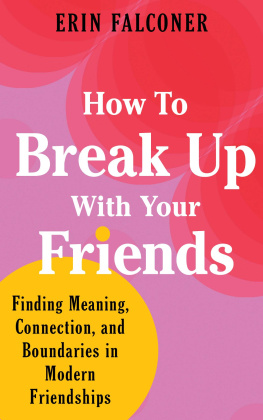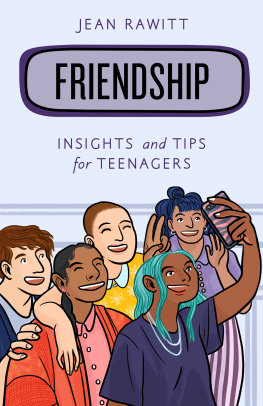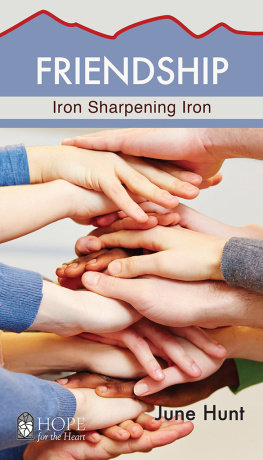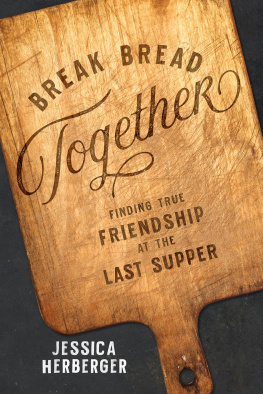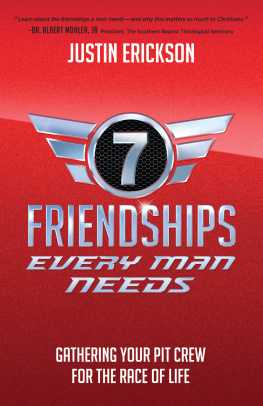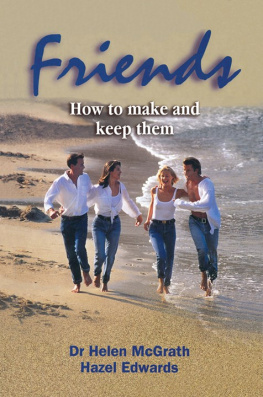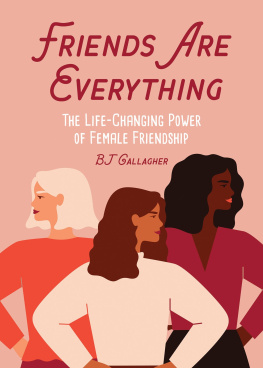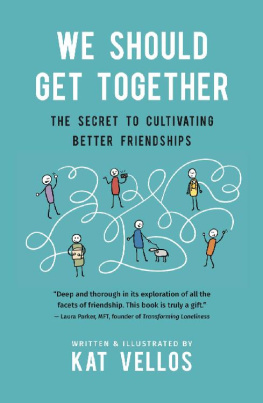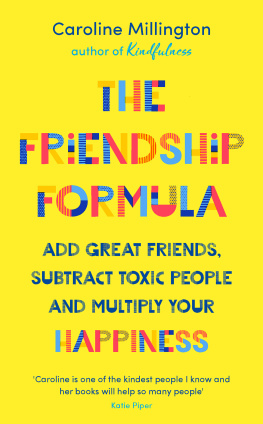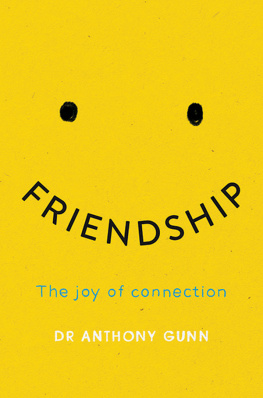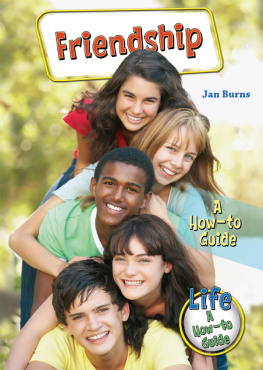
Praise for How to Break Up with Your Friends
Dont let the title fool youthis is a book about connection, empathy, and finding nourishment through friendship. How to Break Up with Your Friends is an essential guide to creating space for these important relationships in our busy lives.
Ximena Vengoechea
author of Listen Like You Mean It
If youve ever been in a situation where ending a friendship felt as painful as a divorce, read this book now. How to Break Up with Your Friends is a manifesto for genuine friendship. Erin sheds light on the qualities of forming deeper connections, prioritizing our well-being, and setting boundaries within our existing relationships, and, ultimately, how to have the courageous conversations needed when its time to break up.
Justin Michael Williams
author of Stay Woke: A Meditation Guide for the Rest of Us
How to Break Up with Your Friends shows the innate power of one of the most underappreciated relationshipsour friendshipsand gives a crystal clear map of exactly how to unlock that power.
Melissa Ambrosini
bestselling author of Comparisonitis and host of The Melissa Ambrosini Show podcast
How to Break Up with Your Friends puts the power of friendship front and center in a way most of us have never contemplated before. Now, more than ever, we need to do friendship right. Erin shows us how.
Denise Vasi
founder of Maed
Breaking up with a handful of my girlfriends over the years were some of the most painful and yet also powerful experiences of my adult life. When I think of heartbreak, its not the men Ive dated that come to mind, but the friendships that had to end! I WISH I had had a guide as impactful as the one Erin Falconer has created here. Her fresh perspectives and approachable strategies form an excellent compass for navigating one of lifes most complex journeys.
Erin King
author of Youre Kind of a Big Deal
How to Break Up with Your Friends is such a great reminder of not only the value of friendship but the personal responsibility a great friendship demands.
Mandana Dayani
creator and cofounder of I am a voter. and cohost of The Dissenters podcast
A refreshing and relatable take on modern-day friendships. Erin shows us how to mine our myriad social connections to find the true gems.
Francine Jay
author of The Joy of Less and Lightly
How to Break Up with Your Friends is really about how (and why) to maintain important connections, and its a blueprint for how to become a better friend yourself. Falconer tackles the subject of friendship with the seriousness it deserves, outlining the life-changing benefits of friendship (something I agree with wholeheartedly!). I plan on gifting this book to my dearest ones with personalized inscriptions.
Gina Hamadey
author of I Want to Thank You
How To Break Up with Your Friends
Also by Erin Falconer
How to Get Sh*t Done
Erin Falconer
How To Break Up with Your Friends
Finding Meaning, Connections, and Boundaries in Modern Friendships

Sounds True
Boulder, CO 80306
2022 Erin Falconer
Sounds True is a trademark of Sounds True, Inc.
All rights reserved. No part of this book may be used or reproduced in any manner without written permission from the author(s) and publisher.
Published 2022
Cover design by Jennifer Miles
Book design by Linsey Dodaro
BK06242
Library of Congress Cataloging-in-Publication Data
Names: Falconer, Erin, author.
Title: How to break up with your friends : finding meaning, connections, and boundaries in modern friendships / by Erin Falconer.
Description: Boulder, CO : Sounds True, 2022.
Identifiers: LCCN 2021018480 (print) | LCCN 2021018481 (ebook) | ISBN 9781683648130 (hardback) | ISBN 9781683648123 (ebook)
Subjects: LCSH: Friendship. | Interpersonal relations.
Classification: LCC BF575.F66 F433 2022 (print) | LCC BF575.F66 (ebook) | DDC 177/.62dc23
LC record available at https://lccn.loc.gov/2021018480
LC ebook record available at https://lccn.loc.gov/2021018481
To all the girls Ive loved before
Some people go to priests; others to poetry; I to my friends.
Virginia Woolf
Contents
I bet you felt like an asshole for picking this book off the shelf.
An even bigger one for buying it.
And yet, notice how quickly you were drawn to it.
The truth is, I chose this title to get your attention, not because I think everyone needs to go through their contact list with a machete. While I certainly do believe, in a world of chaos and clutter, it is imperative to be discerning and thoughtful about just who you remove from your life, it is at least as important to understand who you are keeping in your life and how to be better in those relationships and expect better from them. But these days, no one is walking into a bookstore looking for a book about how to be a better friend.
And thats the problem.
We have accepted mediocrity in ourselves and in our friendships for far too long. And yet, nothing has more power in its ability to help give us fuel, inspire joy, and create true meaning than friendship. Friendships are highly impactful for women. And yet, despite priding ourselves on our big friend networks, I believe we are actually the biggest offenders in dialing in mediocrity. Were afraid to ask for what we really want and need, afraid to rock the boatand in turn, live with friendships that often take more than they give. Today, so much of our time is curated (perfect Instagram feed, anyone?), and yet there seems to be so little thought about the people we keep in our lives. Why are we so tired and frustrated all the time? Well, lets start here, shall we?
Clichs surrounding female friendships try to limit what are actually complex, important relationships. The most damning of these is the notion of competition as an aspect of every female friendshipthat were all fighting over guys, or jobs, or other friends. The flip side to that mean girl trope is that female friendships are sugary trips to the spawithout any tension or conflict ever. This is a time of enormous potential for womenindividually and collectively. Weve learned through social justice movements that were strongest when we support each other. Its so important that we create strong networks of friends in order to foster this potential. This isnt just about being liked; there is a real responsibility here. Sometimes, that means letting go of some of the relationships that arent pulling their weight. It certainly doesnt mean that they didnt provide value along the way. They should be respected. But you dont owe them the rest of your life if, after careful consideration, you decide they arent working any longer.
In researching this book, I found that in so many legacy friendships the participants could no longer remember what they actually liked about the other person. It seemed that their only motivation in keeping the relationship was to be liked, or rather, not to be disliked. When this is the motivation, the relationship has run out of gas or has been built upon faulty architecture. Being liked (or not disliked) should never be the goal. Rather, acting and being seen as authentically yourself, delivering and embracing genuine stewardshipand all the responsibility that entailsare far more worthy goals. And yet, they require courage and take so much more work that it is easy to see why choosing the default factory settings for friendship has become the norm. It is also easy to see, then, why some of our potentially most important relationships have become watered down. Suckers of energy, rather than givers.
Next page
